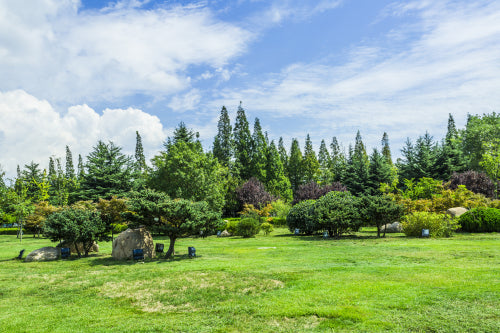Composting is one of the most sustainable practices for both gardeners and the environment. It's a process that has been used for centuries, but its importance has never been more apparent than in today's world, where ecological balance is a growing concern. In its most basic form, composting is the natural breakdown of organic waste into nutrient-rich soil. By using compost, gardeners can create healthier, more productive gardens while also reducing waste, enhancing soil quality, and contributing to the fight against climate change.
Whether you're a novice gardener or an experienced horticulturist, understanding the numerous benefits of composting can elevate the health and vitality of your garden. Let's explore why composting should be a cornerstone of your gardening routine.
1. Improves Soil Structure
The foundation of any thriving garden is healthy soil, and compost plays a critical role in enhancing it. When organic waste, such as food scraps, grass clippings, and leaves, breaks down, it creates humus a rich, dark substance that improves soil structure. Humus is essential for soil because it:
- Increases water retention: Healthy compost-enriched soil can hold water more effectively, which is especially beneficial during dry spells. This ensures that your plants receive a consistent supply of moisture, reducing the need for frequent watering.
- Improves drainage: While compost helps retain water, it also improves drainage. It ensures that water doesn't pool or become stagnant, which can lead to root rot. This balance makes compost ideal for gardens with heavy clay soil or those that suffer from poor drainage.
- Aerates the soil: Compost helps loosen compacted soil, allowing roots to breathe and grow deeper. By improving aeration, you ensure that essential nutrients and oxygen reach the plant's roots more efficiently.
Over time, using compost in your garden will create soil that is healthier, more resilient, and better able to support a variety of plants, from vegetables to flowers.
2. Enhances Plant Growth
Compost doesn't just improve the soil structure; it also enriches the soil with a wealth of nutrients that plants need to thrive. Nutrients like nitrogen, phosphorus, and potassium as well as trace elements like calcium, magnesium, and sulfur are released slowly into the soil as compost breaks down. This slow release ensures that your plants get a steady supply of nutrients over time, rather than a sudden burst that can lead to nutrient imbalances.
Some of the specific ways compost enhances plant growth include:
- Stronger root systems: The nutrients and minerals in compost promote the growth of healthy roots. Stronger root systems enable plants to better absorb water and nutrients, leading to healthier, more robust plants.
- Increased disease resistance: Plants growing in compost-rich soil are more likely to resist diseases and pests. The balanced nutrients help plants build stronger defenses against common garden pathogens.
- Improved flowering and fruiting: Plants that receive the proper nutrients from compost tend to produce more vibrant flowers and higher-quality fruits and vegetables. This is particularly beneficial for gardeners growing food crops.
With compost, you essentially create a self-sustaining, nutrient-rich environment that promotes long-term plant health.
3. Reduces Waste
One of the greatest advantages of composting is its ability to reduce the amount of organic waste that ends up in landfills. Yard trimmings, vegetable scraps, coffee grounds, and other biodegradable material can be composted instead of discarded. In fact, the U.S. Environmental Protection Agency (EPA) estimates that approximately 30% of what ends up in landfills is organic waste, much of which could be composted.
By diverting organic waste from landfills, composting helps:
- Reduce landfill waste: Instead of contributing to overcrowded landfills, organic materials break down in your compost bin, returning nutrients to the soil.
- Lower methane emissions: Organic waste in landfills decomposes anaerobically, producing methane, a potent greenhouse gas. Composting, on the other hand, occurs aerobically and produces far fewer greenhouse gases, making it a more environmentally friendly option for waste disposal.
Composting not only reduces waste but also gives it new life by turning it into something valuable for your garden. This sustainable practice reduces your ecological footprint and helps in the effort to manage waste responsibly.
4. Lowers Greenhouse Gas Emissions
In addition to reducing waste in landfills, composting has a direct positive impact on climate change by lowering greenhouse gas emissions. When organic matter breaks down anaerobically (without oxygen) in landfills, it generates methane, a gas that is 25 times more potent than carbon dioxide at trapping heat in the atmosphere.
However, when organic waste is composted aerobically (with oxygen), the process is more environmentally friendly. Instead of methane, it produces carbon dioxide in small quantities, which plants can use for photosynthesis. Furthermore, composting leads to soil that is more effective at capturing and storing carbon, helping to mitigate the effects of climate change.
By composting, gardeners are actively participating in the fight against global warming, reducing the amount of harmful gases released into the atmosphere.
5. Supports Sustainable Gardening Practices
Composting is a key component of sustainable gardening, as it helps gardeners minimize their reliance on chemical fertilizers and pesticides. When you rely on store-bought products, you can unintentionally harm the ecosystem by contributing to soil degradation and water pollution. Composting offers a natural and effective alternative.
- Reduces the need for chemical fertilizers: Since compost enriches the soil with essential nutrients, you'll need fewer synthetic fertilizers. Over time, this reduces the environmental impact of chemical runoff, which can pollute local waterways and harm aquatic life.
- Enhances biodiversity: Healthy, compost-amended soil encourages the growth of beneficial organisms like earthworms, fungi, and microorganisms that are crucial for a thriving garden ecosystem.
- Supports local food production: By composting, gardeners can grow their own food in a sustainable way, reducing the need for transportation and packaging, which are often associated with store-bought produce.
Composting aligns with the principles of sustainability by conserving resources, promoting biodiversity, and supporting organic gardening practices. It helps gardeners build an eco-friendly, self-sustaining garden that minimizes the need for external inputs.
6. Cost-Effective Gardening
Incorporating compost into your garden can save you money in the long run. Instead of purchasing expensive fertilizers, soil conditioners, and plant food, you can create your own nutrient-rich soil amendment from waste materials. This lowers the cost of maintaining a healthy garden and helps reduce your overall gardening expenses.
Additionally, compost can improve the water retention and drainage of your soil, reducing your water bill by helping plants stay hydrated for longer periods. Composting, in essence, offers a cost-effective, eco-friendly solution to garden care.
Greener Garden
Composting is an invaluable practice for any gardener who seeks to create a greener, more sustainable environment. It offers a wide range of benefits, including improved soil structure, enhanced plant growth, reduced waste, lower greenhouse gas emissions, and support for sustainable gardening practices. By incorporating composting into your gardening routine, you not only promote the health of your plants but also contribute positively to the environment.
So, whether you're starting a small backyard garden or managing a large garden, consider making composting a cornerstone of your gardening practices. With a little patience and effort, you can transform organic waste into rich, fertile soil that will nourish your garden for years to come creating a truly green garden both literally and environmentally.
You may also be interested in: Orchideen zum Blhen bringen: So gelingt es einfach - Tipps vom ...
Discover your gardening joy with a top selection. Your joy and green happiness begin here. Shop Now
Powered by flareAI.

